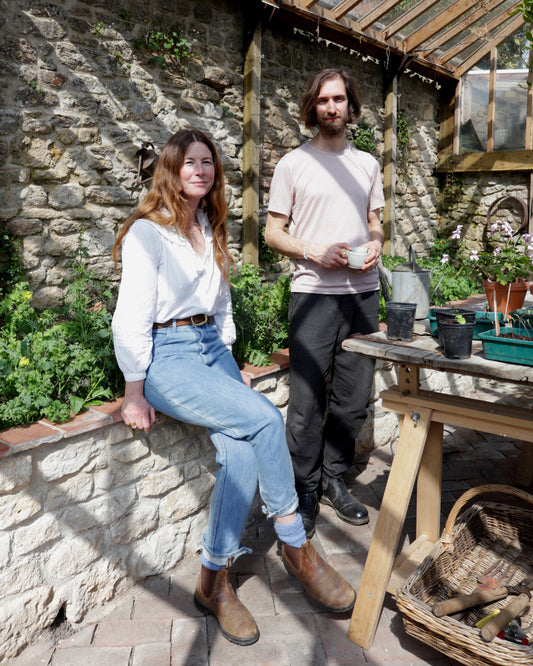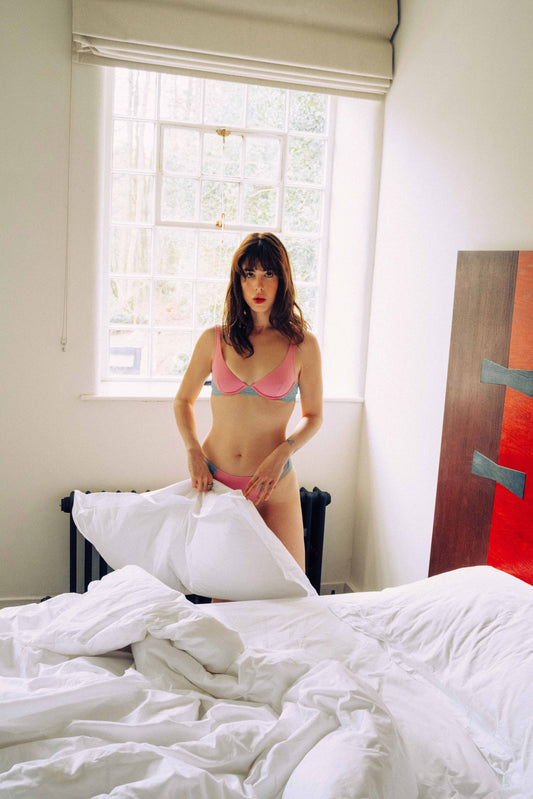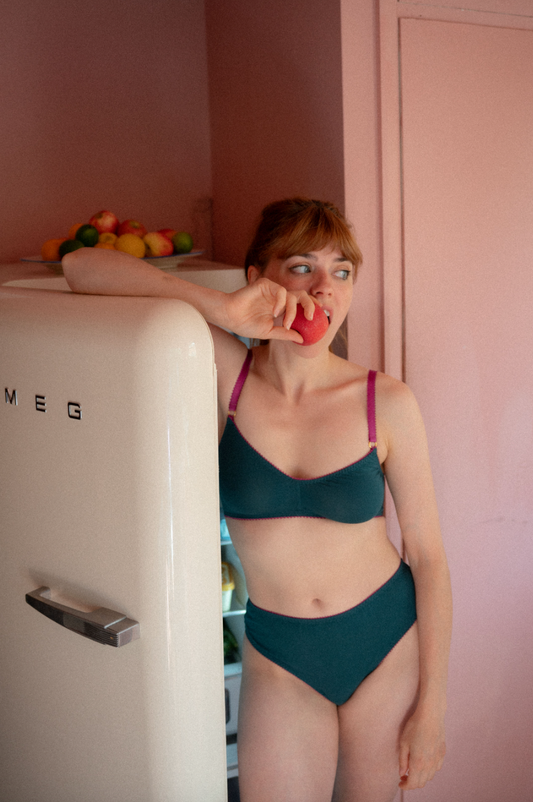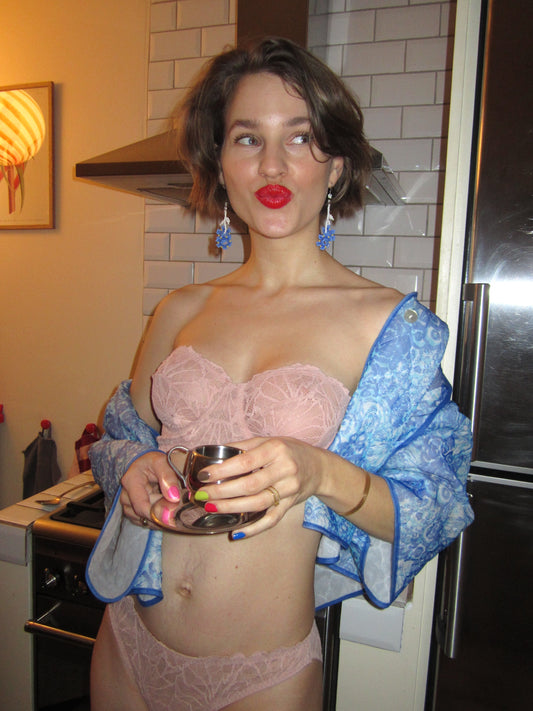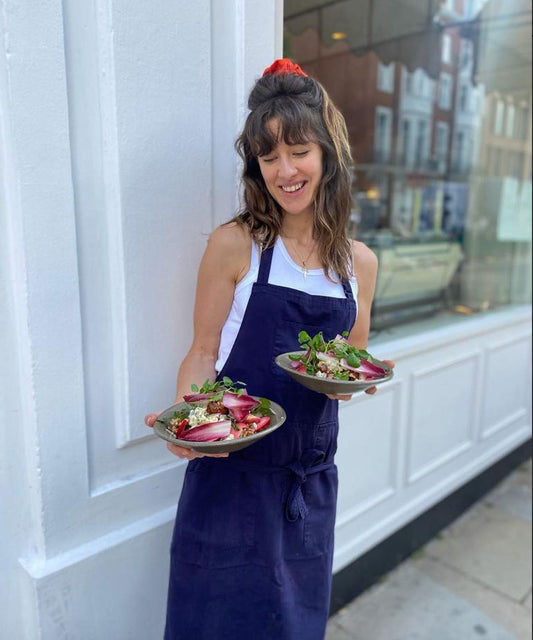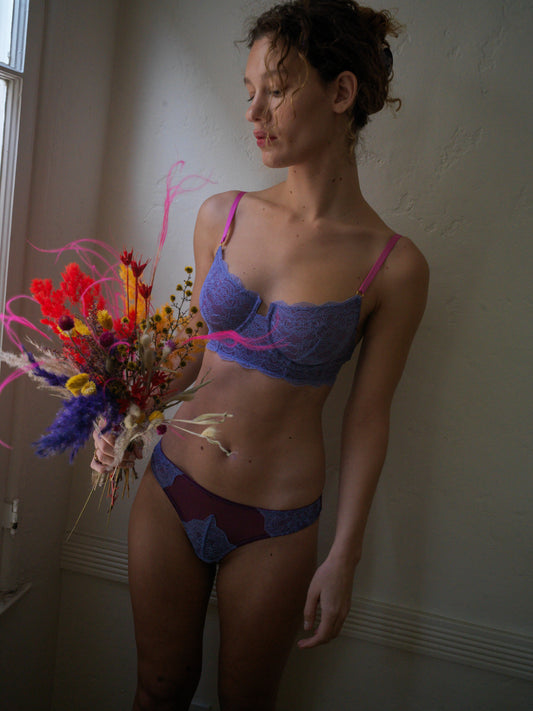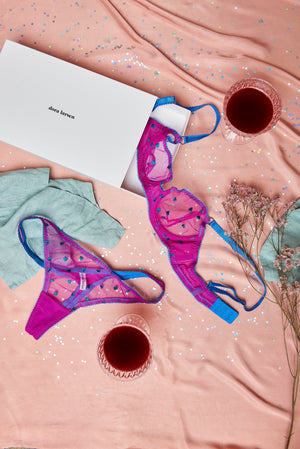This week marks Mental Health Awareness week, and we caught up with friend of the brand, poet and writer, Charly Cox.
Charly’s work focuses on destigmatising mental illness and what it means to be a woman in today’s world. She publicly began sharing her work in 2017 when she posted a new poem to her Instagram page each day for a month and has since published two books showcasing her poetry collections.
Firstly, how are you today?
“I'm good thank you, grappling with balancing the excitement of lockdown restrictions being eased and taking over the new healthier habits that lockdown has taught me.”
Poet and Writer are just two of the things you’re known for today. What first made you put pen to paper, and did you ever imagine that something which was such a cathartic process for you would end up being published for the world to see?
“I've always written. I loved writing short stories as a child and making up songs, and I've kept a diary since I was 7. It was never a case of if but when, in regard to it being my career, but never in a million years did I think that the poetry that I was writing when I was 15 would be published. It was written from such a vulnerable place of pain and confusion, a real coping mechanism. I'm glad that I had no idea anyone else's eyeballs other than my own would have access to them otherwise I'd never have written them at all. They certainly wouldn't hold as much weight, too.”
You’ve often said that writing poetry helped to diagnose your condition. How do you feel that your words help others who are suffering and what advice would you give to anyone who is thinking of doing the same?
“I've found the poetry aspect here useful because living with a mental illness is incredibly abstract and disjointed, there is rarely a linear rhythm to navigate, which is the perk of verse. You can purge all of your thoughts out on to the page and arrange them in a way that makes sense to you. It's also a very safe space. You can be honest with yourself without fear of judgement. Any time I am going through something intense, feeling something frightening or an emotion that physically feels bigger than I am, I try and dissect it in a poem, usually, very quickly. If I don't have an answer, I have tangible proof that the experience was real. That's been the most difficult battle I come up against with mental illness - believing that I'm unwell, that what I'm experiencing is valid and it deserves time spent on untangling. Any kind of immortalising of something that is so fleeting can be incredibly helpful to give you perspective.”

Putting yourself on Instagram when you first published your work must have been daunting, especially on a platform that some find promotes negativity. How do you navigate this space in safe way?
“The only safe way is to adjust your expectations. People can be cruel and that's got nothing to do with me or my worth as a writer. Opinions are subjective. I have developed an unwavering strength from Instagram. If I feel negatively affected by someone's comment, I let it sit for a moment. Did some part of me agree that the work wasn't very good? Or was it really just my ego rearing its head to say, 'SEE, you're WORTHLESS'? I write to keep myself alive, I share it in hope it helps others do the same - anything that it stirs in between must remain utterly unimportant to me otherwise I'd never write a thing again.”
It’s Mental Health Awareness Week. What does this mean to you both as someone who suffers with Bipolar ii, PTSD, Anxiety and Depression, as well as your role as an ambassador for MQ Mental Health Research?
“It's an exhausting week for me personally as it brings up a lot of traumas and I find the lack of nuance of what the week really means frustrating. It's a huge symbol of how far we still need to come within awareness and destigmatising mental illness. We are quite comfortable now within media terms talking about depression and anxiety, self-care is an easy and obvious bandwagon for brands to monetise from - but none of these conversations truly hold any weight until we understand why so many people live with illness. Why it is so many people who have schizophrenia, bipolar, BPD, can't talk about their experiences in professional or social settings without fear of being seen as unreliable and 'insane'.”
Do you think that post lockdown, people will have a different outlook on Mental Health after the past year, and what changes to do you want to see in the future surrounding the conversation overall?
“I hope so. The lockdown made me realise how unrealistic my life was pre-covid. I expected far too much of myself all the time and I am gobsmacked that I managed to keep the circus of socialising, working, looking after myself and general day to day staying alive in the way I had done for so many years. Changes in the conversation need to start with not conflating mental health with mental illness - we all have mental health, not everyone has a mental illness. We need to be holding space for educated and compassionate conversations, not ones that centre buzzwords and fearmongering. Unfortunately, I think this is going to be the battle of my lifetime.”
What do you have coming up for the rest of year?
“I have an exhibition on Greek Street in Soho at the end of June! It's my first time showcasing my poetry in mixed media, offering a tangible experience of what it is I write about and why. It's effectively a collection of all the mementos I've hoarded over 25 years and undressing them to reveal their stories. I'm so excited.”
Charly wears: Natalie Lace High Apex Underwire Bra in a 34C with the matching knicker in a UK12, Jessica Lace High Apex Triangle Bra in a UK12 and the Paige Lace Trim Body in a UK12.
Find Charly here.




